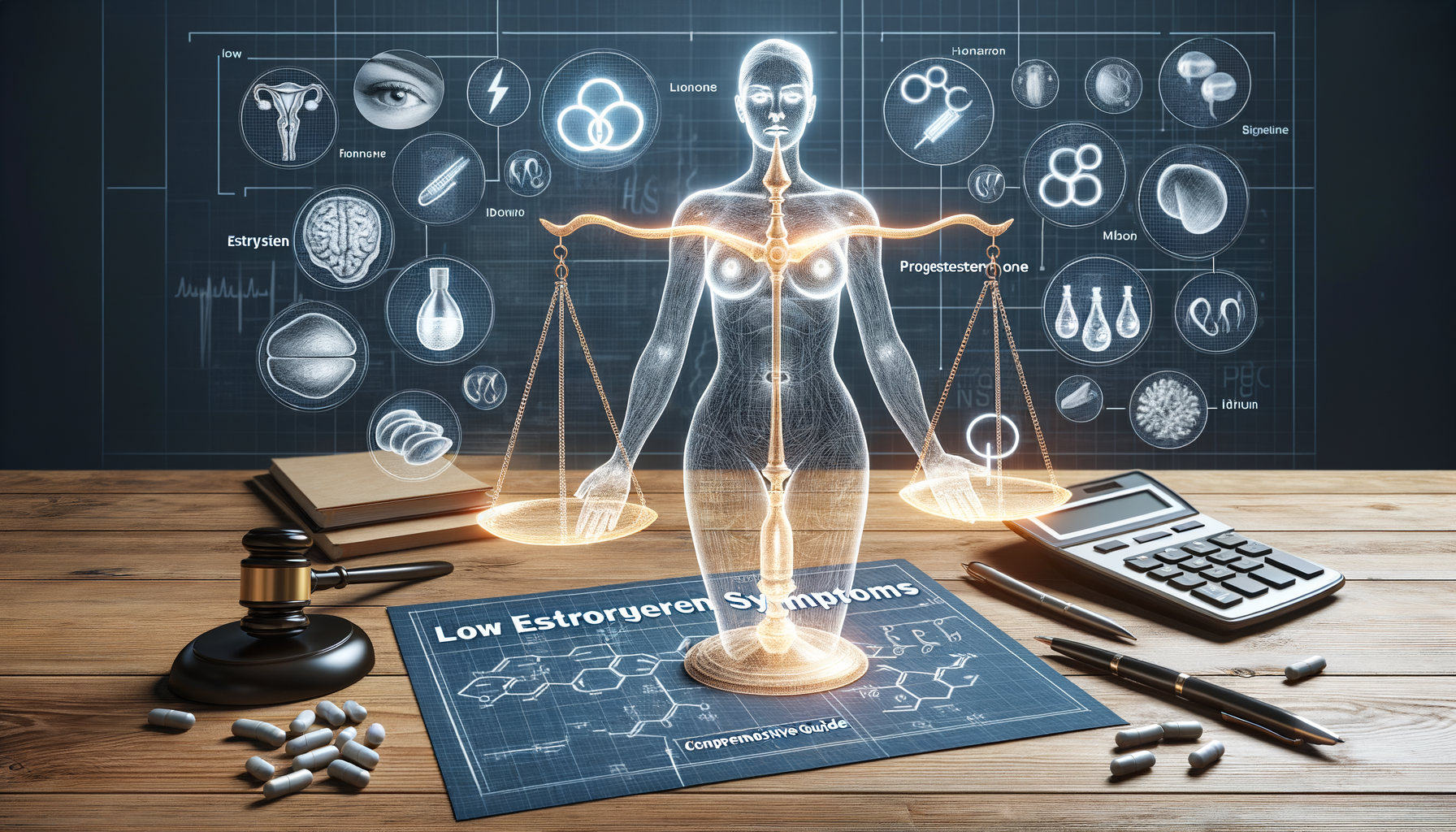Introduction to Low Estrogen Symptoms
Estrogen is a crucial hormone in the female body, playing a vital role in various physiological processes. Its levels can fluctuate due to several factors, including age, lifestyle, and health conditions. Understanding the symptoms of low estrogen is essential for maintaining overall well-being. This article delves into the significance of estrogen, the symptoms associated with its deficiency, and potential strategies to manage these symptoms effectively.
The Role of Estrogen in the Body
Estrogen is primarily known for its role in reproductive health, but its influence extends far beyond that. It contributes to the development of secondary sexual characteristics, regulates the menstrual cycle, and supports bone density. Additionally, estrogen affects mood regulation, cardiovascular health, and skin elasticity. When estrogen levels drop, these functions can be disrupted, leading to a range of physical and emotional symptoms.
Some key functions of estrogen include:
- Regulating the menstrual cycle and reproductive system
- Maintaining bone density and preventing osteoporosis
- Supporting cardiovascular health by influencing cholesterol levels
- Enhancing skin health and elasticity
- Contributing to mood stability and cognitive function
Understanding these roles highlights the importance of maintaining balanced estrogen levels to ensure overall health and well-being.
Common Symptoms of Low Estrogen
Low estrogen levels can manifest in various ways, affecting different aspects of health. Some common symptoms include:
- Irregular or absent menstrual periods
- Hot flashes and night sweats
- Mood swings and irritability
- Decreased libido
- Vaginal dryness and discomfort
- Fatigue and low energy levels
- Increased risk of osteoporosis
These symptoms can significantly impact a woman’s quality of life, influencing both physical and emotional well-being. Recognizing these signs early can help in seeking appropriate medical advice and interventions.
Causes of Low Estrogen Levels
Several factors can contribute to decreased estrogen levels. Natural causes include aging and menopause, where the ovaries gradually produce less estrogen. Other factors may include:
- Excessive exercise or extreme dieting
- Chronic stress
- Polycystic ovary syndrome (PCOS)
- Autoimmune disorders
- Thyroid disorders
- Genetic conditions
Understanding the underlying cause is crucial for determining the most effective treatment strategy. In some cases, lifestyle adjustments or medical interventions might be necessary to address the root cause of low estrogen levels.
Managing Low Estrogen Symptoms
Managing low estrogen symptoms involves a comprehensive approach that may include lifestyle changes, dietary adjustments, and medical treatments. Here are some strategies to consider:
- Hormone Replacement Therapy (HRT): This is a common treatment for menopausal symptoms, helping to restore estrogen levels.
- Dietary Changes: Incorporating foods rich in phytoestrogens, such as soy products, flaxseeds, and whole grains, can naturally support estrogen levels.
- Exercise: Regular physical activity can help in maintaining a healthy weight and reducing stress, both of which can influence hormone levels.
- Stress Management: Techniques such as yoga, meditation, and deep breathing can help in managing stress and its impact on hormone balance.
- Regular Medical Check-ups: Monitoring hormone levels and overall health can aid in early detection and management of symptoms.
By adopting these strategies, women can effectively manage the symptoms of low estrogen and improve their quality of life.
Conclusion: Navigating Life with Low Estrogen
Understanding and managing low estrogen symptoms is crucial for women’s health, particularly as they age. By recognizing the signs, exploring the causes, and implementing effective management strategies, women can maintain their health and well-being. It’s essential to consult healthcare professionals for personalized advice and treatment options tailored to individual needs. With the right approach, the challenges of low estrogen can be navigated successfully, ensuring a balanced and healthy life.








